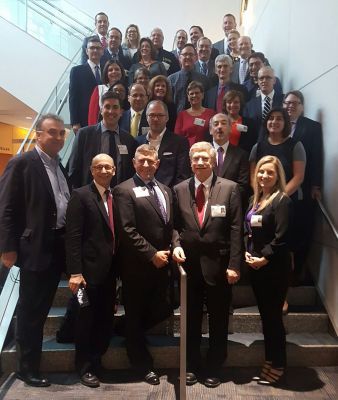
National Cardiac Arrest Collaborative to hold Town Hall meeting at ECCU in December
Interested individuals and stakeholders representing many organizations gathered at the National Institutes of Health (NIH) campus in Bethesda, MD, on May 11th to kick off the National Cardiac Arrest Collaborative (NCAC). This forum is intended to foster communication and coordinate action among the various organizations that are working to improve survival and recovery after sudden cardiac arrest.
NCAC was formed in response to a call from the National Academies of Medicine report “Strategies to Improve Cardiac Arrest Survival: A Time to Act.” Similar collaborative efforts have been instrumental in improving patient outcomes after stroke, cancer, and a variety of chronic conditions. The National Academies of Medicine report made eight recommendations for the nation to address, and NCAC intends to turn its attention to all of these items in time.
The NCAC Steering Committee, led by the American Red Cross and American Heart Association, determined the agenda for this first meeting and invited stakeholders with relevant expertise. The specific focus of this first meeting was to identify the core message that NCAC will provide: that is, what the public, medical providers, policy makers, manufacturers and others need to know about cardiac arrest. This topic was selected because it is central to future communications and branding from the collaborative.
NCAC is committed to improving national messaging about cardiac arrest. Participants discussed the benefits and limitations of existing messaging from American Heart Association, American Red Cross, Citizen CPR, and others. Public confusion about the differences between “heart attack” and “cardiac arrest” was identified as a key issue. Participants also discussed the need to adapt messaging and advice to different segments of the population.
Going forward, the NCAC steering committee will help coordinate a working group to develop refined messaging about cardiac arrest, which will report back to the collaborative. In addition, NCAC plans to have a Town Hall meeting at the Emergency Cardiovascular Care Update (ECCU 2017) meeting in New Orleans on December 5th from 2:30-4:30 pm. Now that there is a working relationship among stakeholders, NCAC hopes to embark on each of the eight recommendations from the National Academies of Medicine.
SOURCE: NCAC Meeting Chairs Clifton Callaway, MD, PhD and Richard Bradley, MD, FACEP
